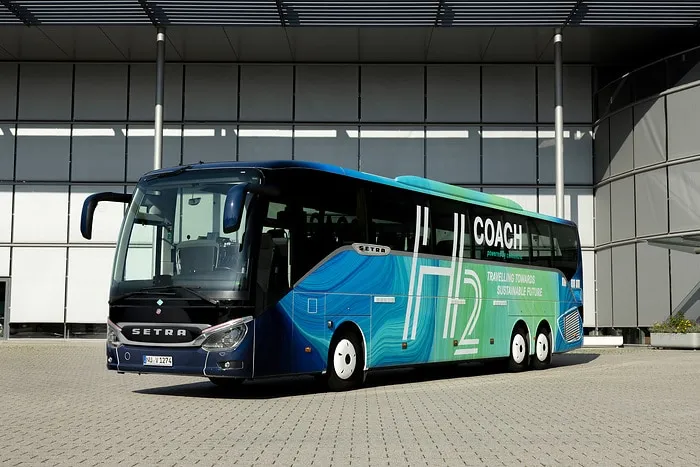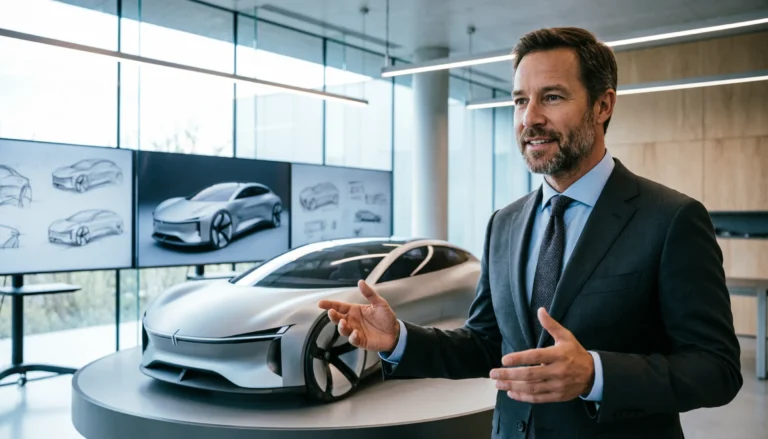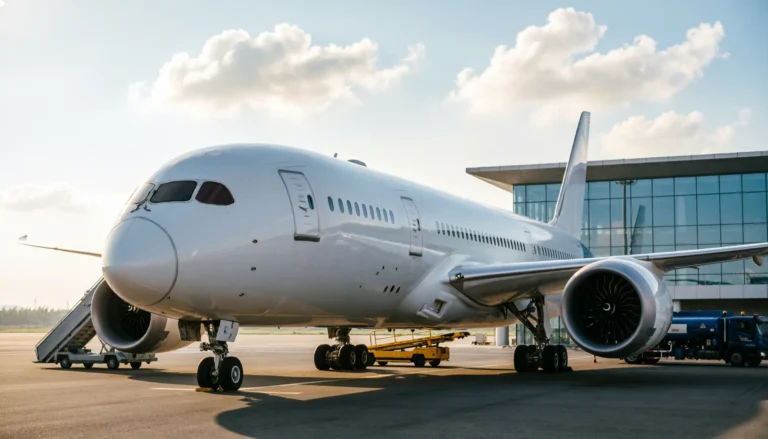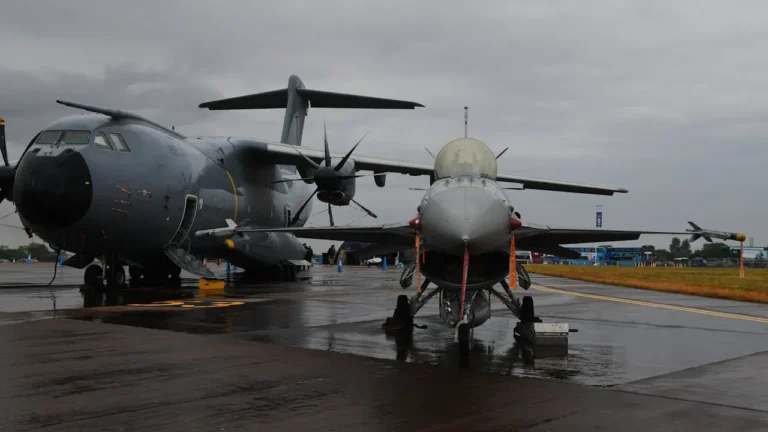
Daimler Buses Launches First Setra “H₂ Coach” with Hydrogen Fuel Cell Drive for Test Operations
Daimler Buses has reached an important milestone in its journey toward sustainable long-distance passenger transport. The company has begun test drives of its first-ever coach equipped with a hydrogen-based fuel cell drive. Branded as the Setra “H₂ Coach,” this technology carrier demonstrates Daimler Buses’ vision for emission-free mobility in the coach segment and serves as a complement to its future line-up of battery-electric models.
The introduction of the H₂ Coach marks a decisive step forward in Daimler Buses’ electrification strategy. While battery-electric coaches are expected to join the portfolio by the end of the decade, the hydrogen-powered variant is being positioned as the next major innovation, with series production already on the horizon. This dual approach reflects Daimler Buses’ commitment to offering multiple pathways to sustainable transportation—battery-electric solutions for shorter to medium routes and hydrogen-powered options for long-distance travel where range and refueling time are crucial.
Borrowing Proven Technology from Daimler Truck
The engineering foundation of the H₂ Coach leverages Daimler Truck’s extensive expertise in hydrogen-powered heavy-duty transport. The coach’s drive technology is largely derived from the Mercedes-Benz GenH2 Truck, which has already proven itself as a pioneering fuel cell truck within the Daimler Truck parent group. By utilizing these tried-and-tested components, Daimler Buses ensures that its hydrogen coach is not only innovative but also built on robust, reliable systems.
With a fully loaded hydrogen tank, the Setra H₂ Coach promises a minimum driving range of 800 kilometers. This endurance makes it highly attractive for intercity and international travel routes, offering operators the flexibility and convenience of covering long distances without frequent refueling stops.
Technical Details of the Setra S 517 HD H₂ Coach
At the heart of the 13.9-meter-long high-decker coach—officially designated Setra S 517 HD—is a sophisticated hydrogen energy system. It consists of two hydrogen tanks with a combined storage capacity of 46 kilograms of hydrogen, paired with a cellcentric fuel cell unit.
The fuel cell, which delivers 300 kW of output, converts hydrogen into electrical energy. This energy powers a central electric motor designed for a continuous output of 320 kW and a peak output of up to 400 kW, enabling smooth and powerful acceleration. The motor delivers torque ranging from 1,368 Nm to 2,470 Nm, ensuring strong performance even on challenging terrain such as mountain passes.
An integrated battery pack complements the fuel cell system, serving as a buffer for storing surplus energy and providing short-term boosts of additional power when needed. This design optimizes efficiency by ensuring that the fuel cell runs in its most favorable operating range, while the battery handles fluctuations in demand.
The converted S 517 HD, with a gross vehicle weight of 24.7 tons, has already received approval as a test vehicle. Certified under Section 19.6 of the German Regulations Authorizing the Use of Vehicles for Road Traffic, the H₂ Coach can now undergo trials both on Daimler’s own test tracks and on public roads under real-world conditions.
Advantages of Hydrogen Coaches
With its zero-emission technology, the H₂ Coach represents a promising alternative to conventional diesel-powered coaches. Hydrogen propulsion not only eliminates harmful tailpipe emissions but also offers quieter operation, which contributes to improved comfort for passengers and reduced noise pollution in urban centers and tourist regions.
Compared to battery-electric buses, the hydrogen coach offers significant advantages in specific use cases. While battery buses excel in city operations, hydrogen-powered coaches stand out with their longer range and shorter refueling times, both of which are crucial for intercity travel and demanding schedules. This positions hydrogen as a practical solution for operators looking to transition fleets without compromising efficiency.
Development Hub at Neu-Ulm
The development of the Setra H₂ Coach is taking place at Daimler Buses’ site in Neu-Ulm, Germany, which serves as the competence center for coach engineering and production across all drive technologies. Approximately 3,800 employees at the site are involved in central functions, research and development, as well as manufacturing. Their expertise ensures that Daimler Buses remains at the forefront of innovation in the global coach industry.
Daimler Buses’ Roadmap for E-Mobility
The H₂ Coach is part of Daimler Buses’ broader electrification roadmap, which mirrors the dual strategy of its parent company, Daimler Truck. The company is actively investing in both battery-electric solutions and hydrogen-based technologies, recognizing that both will play vital roles in achieving sustainable mobility across different segments.
Since 2018, Daimler Buses has been producing the fully battery-electric Mercedes-Benz eCitaro city bus, which became available in 2023 with an optional hydrogen-based fuel cell as a range extender. The Mercedes-Benz eIntouro, a fully battery-electric intercity bus, will follow in 2026, with its world premiere scheduled for October 2025 at Busworld Europe in Brussels. Orders for the eIntouro have already been open since the first quarter of 2025.
This clear roadmap reflects Daimler Buses’ ambition to offer a comprehensive portfolio of sustainable vehicles tailored to diverse operational needs—from inner-city routes to long-distance coach journeys.




